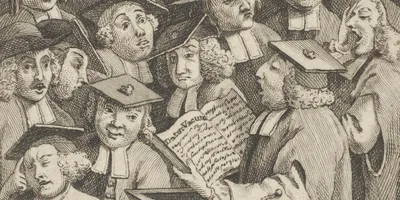Update Nov 2024: Development of these curricula is on hold.
I'm in the process of writing self-study curricula for various topics in linguistics. Each is meant to teach a topic at the approximate level you'd get in a Masters programme, or in the first year of an American PhD programme. This means they assume no background in linguistics, but have the aim of making you a proficient reader of original research in a (relatively) short time frame. You can study each of them on your own.
These curricula are:
- Language and Human Nature: An introduction to linguistics focusing on big conceptual questions of what language can tell us about what it means to be human.
- Phonological Theory: An introduction to generative phonology, covering the main findings and theories of contemporary research into the sound patterns of language.
- Syntactic Theory: An introduction to syntax from a generative perspective, where we study the tacit knowledge that allows speakers of a language to produce and comprehend sentences.
- Structure and History of the English Language (coming soon): A survey of English grammar and its history from a linguistic perspective.
- Historical Linguistics (coming soon): An introduction to the study of language change and the reconstruction of historical languages.
The following planned curricula assume some linguistic background:
- Linguistics in the History of Ideas (coming soon): In this curriculum we study the debates within linguistics in the context of the wider history of ideas in psychology, anthropology, philosophy, and cognitive science.
- Language Diversity and Linguistic Typology (coming soon): This curriculum introduces you to the range of variation among the structures of the world's languages and the implications this diversity has for linguistic theory.
- Formal Modelling of Language (coming soon): An introduction to the formal mathematical modelling of linguistic phenomena, particularly in phonology and syntax.









